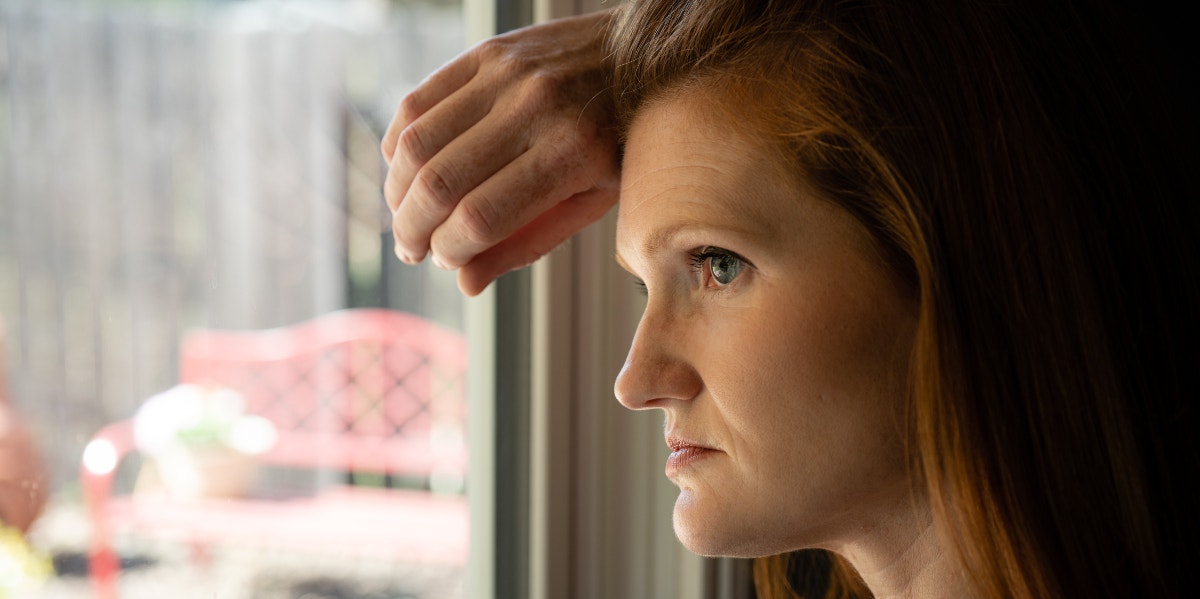What Social Anxiety Feels Like — How To Live (And Deal) With Social Phobia
Social phobia is both common and crippling and should never be faced alone.
 7713 Photography / Shutterstock
7713 Photography / Shutterstock It’s difficult to spell out exactly what social anxiety feels like to someone that hasn’t experienced it.
Social anxiety is an oppressive, constant fear of judgment or embarrassment in social situations.
As Success and Leadership Coach Christine Hourd puts it, “Social anxiety, also referred to as shyness, is like being put under a microscope in the presence of others, and creates this fear of being judged or criticized for your actions and behavior. This feeling is so intense that it keeps you from speaking or taking action the way you would when relaxed.”
Social anxiety is most often characterized by irrational anxiousness in an otherwise mundane social situation.
While it can be difficult to explain exactly what social anxiety feels like, there are common physical and emotional symptoms.
Physical symptoms include shaking, sweating, rapid heartbeat, dizziness, and nausea, while emotional symptoms manifest as self-consciousness around others and sometimes even a feeling of dissociation.
Social Anxiety Disorder needs must be specifically diagnosed by a medical professional, so if you or anyone in your life exhibits the symptoms associated with social anxiety, seek an evaluation.
Social anxiety symptoms manifest in a number of different situations.
Social anxiety can be crippling in all manner of social encounters, including work or school, job interviews, familial gatherings, parties, and the like.
Social anxiety can cause an otherwise mundane or enjoyable social encounter to become a monumental test of wit and guile. The consequences for making a mistake in said social situations feel as though carry dire consequences of judgment, embarrassment, and draw undue attention.
You feel as though you have to carefully calculate and evaluate each and every word before you say it. "Was that a stutter? Do you sound like a liar? Everyone’s having fun conversations, how do I break into them without sounding like an idiot? I should check my phone, it’s been a few seconds since I last looked at it."
What is especially cruel about social anxiety is that, like the fear of the dark, socially anxious people often know that their fears of social encounters are irrational. Unlike the fear of the dark, however, this awareness can make the anxiety worse.
By knowing that they have this irrational anxiety in social situations and limited ability to control it, anticipation and a fear of the fear can form. “Oh my God, I know I get anxious around new people, surely they’ll see that I’m nervous and judge me for it!”
The roots of social anxiety tend to go back to childhood.
As Clinical Hypnotherapist and Spiritual Life Coach Keya Murthy says, “Social anxiety is common for children who grew up feeling stifled. When children have to watch what they say or do and struggle to find approval, anxiety is a byproduct that begins at eight years of age and keeps growing stronger with age.”
Do you remember when you were little and, unless you were some lion of a child, you had some fear that you have since gotten over? Most of us were afraid of the dark and what horrible things we were convinced were lurking within.
The dark is the perfect universal fear for children because anything can hide in it.
As adults, we might feel uncomfortable or wary of the dark, but most adults are not going to panic and run away when the lights go out like children do (though I’d be lying if I said that I didn’t quicken my pace when turning out the lights in the basement every night).
As we grow older, we grapple with that fear and receive reinforcement from the other people in our lives that the dark isn't something that we have to be afraid of. As we grow, we also become more confident that the world does not fill with monsters the instant the lights go out.
The opposite occurs when the reinforcement that we receive as children hardens our anxieties in social situations. If you are told to be quiet and that you are to be seen and not heard then that can create social anxiety.
Receiving negative feedback during social encounters as a child can manifest in real social anxiety later in life.
There are ways to work toward overcoming social anxiety in your day-to-day life.
Getting past social anxiety can be difficult — but it's not impossible.
Peak Performance Coach Raymond Perras lists the following actions that can improve social anxiety:
1. Journaling
Develop the habit of journaling every day, improve your awareness of your situation, and note how you are feeling throughout the day.
2. Leave time for things you enjoy.
Learn to plan out your day and insert activities that bring you joy and happiness; that happiness will help develop a positive outlook and reduce the fear of social encounters.
3. Study the technique of reframing and apply it.
Study and learn to visualize how you react in a given situation, decide how you will face the unpleasant situation. With time and sustained practice, you will teach your brain to accept the moment as just another event in your life.
The most important factor is to get in touch with medical professionals to get a diagnosis and a treatment plan. Social Anxiety Disorder can affect people for years even with treatment so it’s important to get the help of a professional as soon as possible.
When dealing with social anxiety, remember that you are not alone.
It may be difficult to reach out to others due to social anxiety but it’s extremely important to talk through the feelings that you’re having with loved ones and to get in touch with professional help if necessary.
Dan O'Reilly is a writer who covers news, politics, and social justice. Follow him on Twitter.

